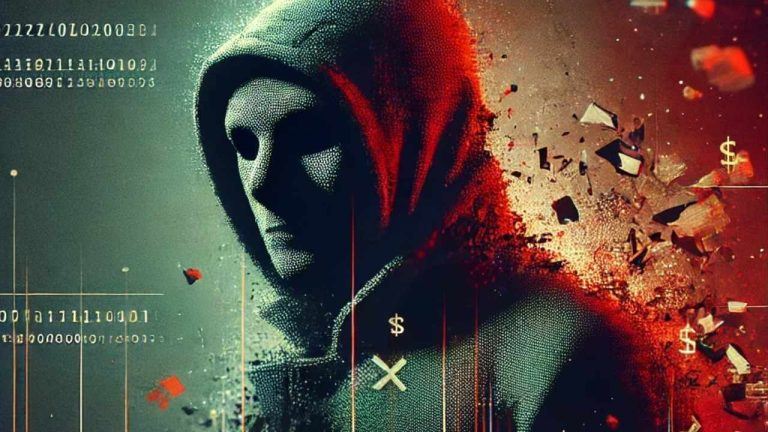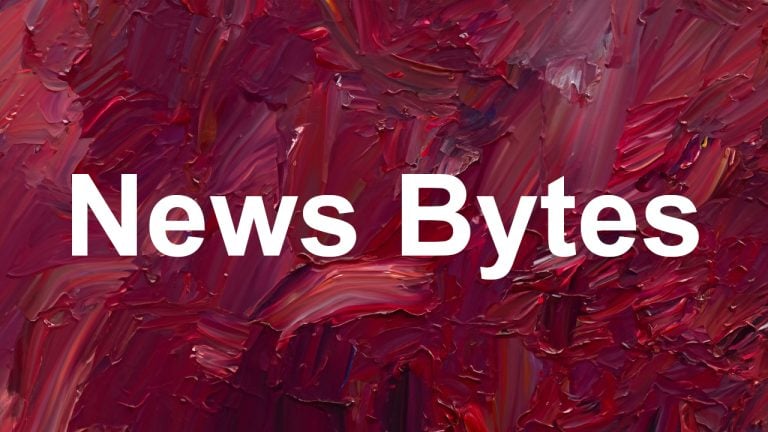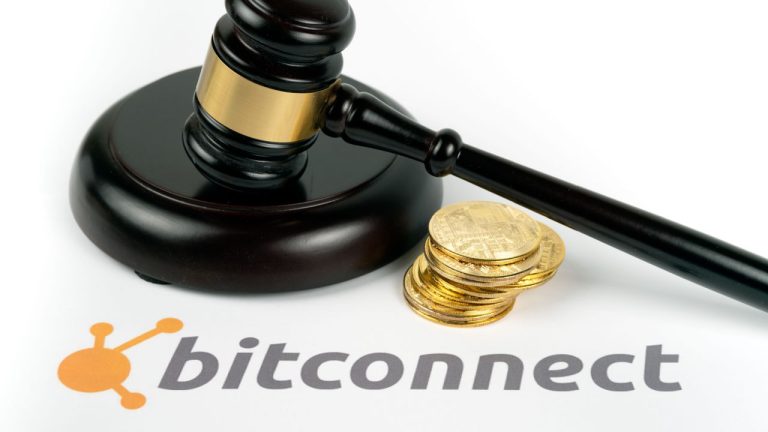 A cryptocurrency promoter was sentenced to 20 years in prison for running a Ponzi scheme that defrauded thousands of investors, particularly in Spanish-speaking U.S. communities. The scheme, disguised as a crypto mining operation, promised guaranteed returns but left victims unable to withdraw funds while promoters pocketed millions. The fraudster was ordered to forfeit over $3.6 […]
A cryptocurrency promoter was sentenced to 20 years in prison for running a Ponzi scheme that defrauded thousands of investors, particularly in Spanish-speaking U.S. communities. The scheme, disguised as a crypto mining operation, promised guaranteed returns but left victims unable to withdraw funds while promoters pocketed millions. The fraudster was ordered to forfeit over $3.6 […] The U.S. Commodity Futures Trading Commission (CFTC) has initiated legal action against a fake trading platform and its associates for defrauding investors out of $3.6 million. The scheme, which targeted Asian Americans, involved soliciting funds in fiat and digital assets, with false promises of trading in commodity futures. Instead, the funds were misappropriated and diverted […]
The U.S. Commodity Futures Trading Commission (CFTC) has initiated legal action against a fake trading platform and its associates for defrauding investors out of $3.6 million. The scheme, which targeted Asian Americans, involved soliciting funds in fiat and digital assets, with false promises of trading in commodity futures. Instead, the funds were misappropriated and diverted […] The U.S. District Court for the Northern District of Illinois has ordered an Oregon resident and his entities to pay over $209 million in penalties for running Ponzi schemes disguised as crypto and carbon investment programs. This includes restitution, disgorgement of illegal profits, and a civil penalty. The Commodity Futures Trading Commission (CFTC) has recovered […]
The U.S. District Court for the Northern District of Illinois has ordered an Oregon resident and his entities to pay over $209 million in penalties for running Ponzi schemes disguised as crypto and carbon investment programs. This includes restitution, disgorgement of illegal profits, and a civil penalty. The Commodity Futures Trading Commission (CFTC) has recovered […] Rashawn Russell, a former investment banker, was sentenced on Thursday to 41 months in prison for a cryptocurrency fraud scheme that caused $1.5 million in investor losses. From November 2020 to August 2022, Russell deceived multiple victims by promising high returns from cryptocurrency investments, only to misappropriate their funds for personal use, gambling, and repaying […]
Rashawn Russell, a former investment banker, was sentenced on Thursday to 41 months in prison for a cryptocurrency fraud scheme that caused $1.5 million in investor losses. From November 2020 to August 2022, Russell deceived multiple victims by promising high returns from cryptocurrency investments, only to misappropriate their funds for personal use, gambling, and repaying […]
The brother of a former Coinbase employee allegedly profited from an insider trading scheme and now has 20 years to repay the funds.
The brother of a former Coinbase employee has agreed to pay the cryptocurrency exchange nearly $470,000 for his role in an insider trading scheme.
According to a New York District Court filing signed on April 6 and made public on April 10, Nikhil Wahi — brother of former Coinbase product manager Ishan Wahi — will be required to begin making restitution payments while serving time in prison in what is believed to be the first insider trading case involving crypto.
The amount must be paid in full within 20 years of Nikhil’s release from prison and represents the amount Coinbase spent on legal services relating to the Department of Justice’s investigation.
In September 2022 Nikhil pleaded guilty to initiating trades based on confidential information obtained from his brother and is currently serving 10 months in prison for wire fraud conspiracy charges after being sentenced on Jan. 10.
2/ As a result of our investigation we identified 3 suspects and provided this information to law enforcement. One person was a Coinbase employee who we terminated. Today, the DOJ has criminally charged this former employee and the two other individuals for this abusive conduct.
— Brian Armstrong (@brian_armstrong) July 21, 2022
Because of his position at Coinbase, prosecutors alleged Ishan knew when the exchange would be listing new cryptocurrencies and informed his brother Nikhil and an associate of theirs, Sameer Ramani, prior to the asset listings being publicly announced.
The prices of the listed cryptocurrencies generally rose after their listing, netting Nikhil $892,500 in profit, according to prosecutors. As part of his sentencing, Nikhil was required to forfeit these funds to the United States government.
Related: Coinbase head of exchange departs and plans to start new crypto project: Report
In a separate civil case, Coinbase defended the brothers and Ramani after the trio was sued by the Securities and Exchange Commission for violating antifraud provisions of U.S. securities laws.
In a March 13 amicus brief, Coinbase said that it condemns the defendants’ conduct but was supportive of a motion to dismiss the case as it argued the SEC had no jurisdiction to file a lawsuit given the tokens in question do not pass the Howey test — a U.S. legal doctrine that evaluates whether an asset is a security.
Last week I testified to Congress about Coinbase’s futile effort to register with the SEC so we can begin to offer digital asset securities. Today we filed an amicus brief in SEC v. Wahi that explains why this misguided suit only makes things worse. 1/5https://t.co/9iWYrWwpiI
— paulgrewal.eth (@iampaulgrewal) March 14, 2023
The SEC noted in an April 3 filing that it had reached an “agreement in principle” with Ishan to resolve the SEC’s claims and was also in “good faith discussions” with Nikhil.
Hodler's Digest, April 2-8: BTC white paper hidden on macOS, Binance loses AUS license and DOGE news
 More than $17 million in restitution will be distributed among investors in the pyramid scheme Bitconnect under a court order in the United States. The notorious crypto investment scheme defrauded thousands of people around the world. Bitconnect Investors From Dozens of Countries to Be Paid Back Millions of US Dollars A total of over $17 […]
More than $17 million in restitution will be distributed among investors in the pyramid scheme Bitconnect under a court order in the United States. The notorious crypto investment scheme defrauded thousands of people around the world. Bitconnect Investors From Dozens of Countries to Be Paid Back Millions of US Dollars A total of over $17 […]
The millions will be distributed among the select number of victims, but thousands more were impacted by the $2.4 billion fraudulent scheme.
A group of crypto fraud victims of the BitConnect investment scheme will see some respite from the multi-billion dollar fraud scheme after a court ordered they receive a share in a $17 million restitution.
The United States District Court for the Southern District of California ordered the restitution for the “massive” scheme on Jan. 12 according to a release on the same day by the Department of Justice (DOJ).
800 victims of the scheme, hailing from 40 countries will be able to take a small slice of the $17 million restitution, a term that refers to returning property or monetary value of losses to the proper owner.
The DOJ statement noted that Bitconnect was a purported crypto lending platform that touted proprietary technology including the “Bitconnect Trading Bot” and “Volatility Software” that claimed would net investors guaranteed returns.
It promised a return an average daily compounding interest of 1% or 3,700% annually.
Investors would trade in Bitcoin (BTC) receiving Bitconnect Coin (BCC) in return which could be lent out at varying rates of interest.

However, the whole platform turned out to be a "textbook Ponzi scheme," as early investors were paid with funds supplied by new investors, it wrote.
The crypto platform launched in 2016 but collapsed in 2018 after pilfering $2.4 billion from over 4,000 people from 95 countries.
Related: How to tell if a cryptocurrency project is a Ponzi scheme
The alleged founder of Bitconnect, Satish Kumbhani, was charged by the DOJ in February 2022. He is also subject to a police investigation in India and his whereabouts are currently unknown.

The top U.S.-based Bitconnect promotor, Glenn Arcaro, pled guilty to wire fraud conspiracy charges in September 2021 and was ordered to pay back $24 million to investors.
According to the DOJ, Arcaro and others used 15% of Bitconnect investor money for a slush fund to be used for the benefit of its owner and other promoters.
On Sep. 16, 2022, Arcaro was sentenced to 38 months in prison for his participation in Bitconnect.